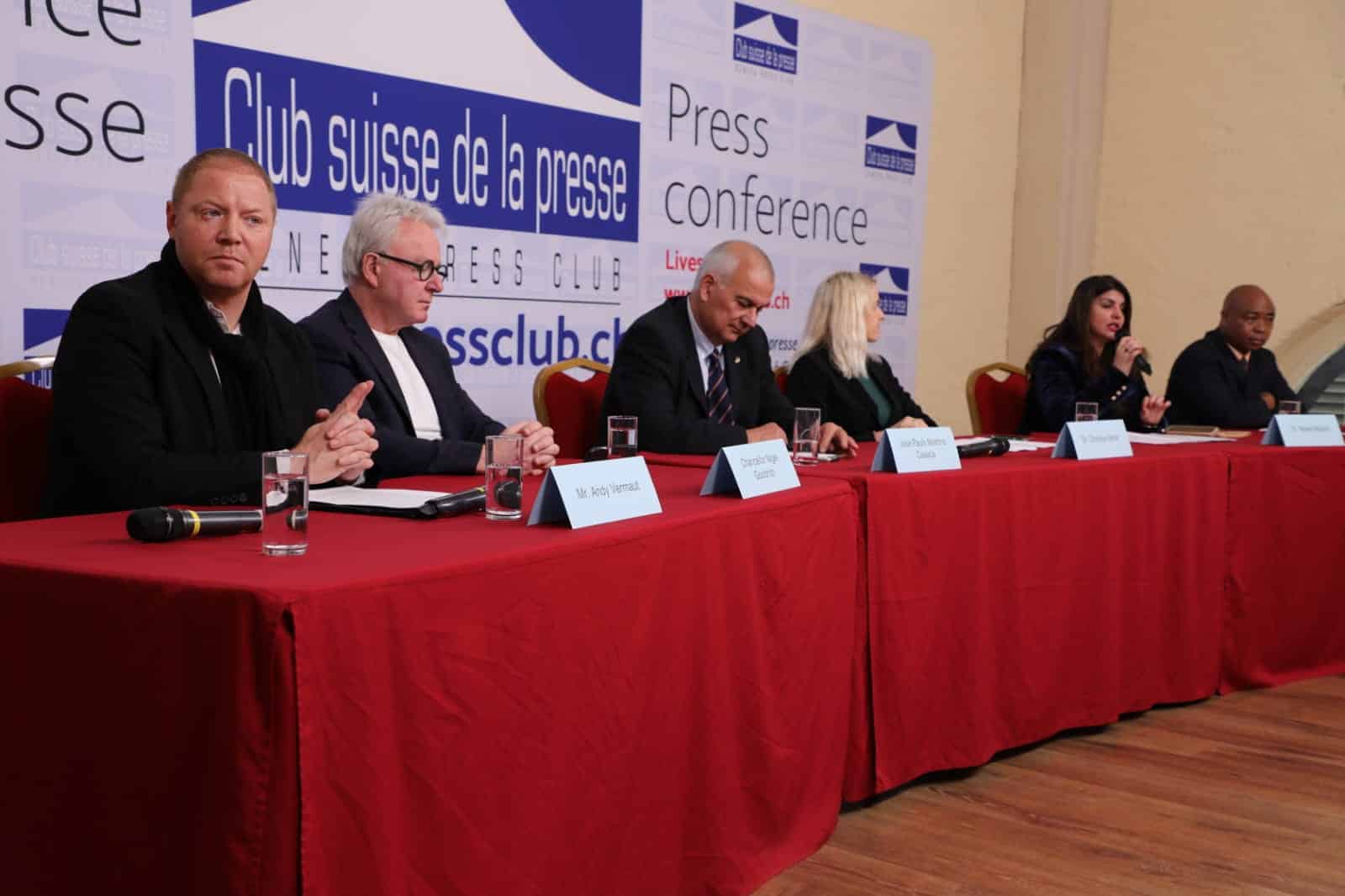War-torn Syria and neighbouring Türkiye were rocked by twin earthquakes on 6 February, which killed more than 56,000 people and caused widespread destruction, displacing millions.
“The situation today is so unprecedented that it calls for leadership, bold ideas and a cooperative spirit,” said Mr. Pedersen, speaking via videoconference from Geneva.
“A political solution is the only way forward for Syria. We may not be able to reach that in one step – but I believe we can progress towards it gradually.”
Maintain calm on the ground
The UN envoy said it is absolutely vital to continue to provide resources to support the earthquake response and ongoing humanitarian operations related to the war, which this month entered its 12th year. Security Council resolution 2254, adopted in December 2015, outlines a roadmap for a ceasefire and political solution to the conflict.
He stressed the need for sustained calm on the ground, especially in those areas affected by the earthquake.
“The week after the earthquakes saw signs of such calm emerging, with a relative lull in violence in most quarters,” he said. “For brief moments, the unimaginable became real – parties on each side of the front-line largely refraining from hostilities. Since then, we have seen a creeping rise in incidents.”
Catalyst for progress
Expressing concern for civilians, Mr. Pedersen warned of the risk of escalation. In this regard, he has been working with key stakeholders towards a sustained calm, particularly in earthquake-affected areas in northwest Syria, the last opposition stronghold.
“In the same way that we have seen moves from different sides in the humanitarian sphere, this logic can and must be applied to address post-earthquake rehabilitation and broader political challenges,” he said.
Prior to the earthquake, humanitarian convoys brought aid into northwest Syria via a single authorized border crossing with Türkiye. Two additional crossing points were subsequently re-opened, and he said there have also been “new openings” on sanctions.
“This shows that different sides can make constructive moves,” he said. “I sense, from all the discussions I have had, that there is an opportunity to move forward with additional moves on all sides beyond the immediate emergency.”
Engagement with all sides
To advance on this front, Mr. Pedersen called for engaging with the Syrian parties on how they can create an environment conducive to post-earthquake rehabilitation. Engagement with “outside actors” will also be required to determine how they can provide enhanced resources and remove hindrances, including those related to sanctions.
He listed some of the issues that will have to be discussed, such as security, civilian protection, basic services, energy infrastructure, livelihoods, and land for housing; but also conscription or detention, which he said are vital for Syrians, including refugees and internally displaced persons.
“I believe that verifiable steps implemented mutually and reciprocally from all sides are doable,” he said. “I am convinced that such steps could enable us to move forward incrementally into post-earthquake rehabilitation and, in the process, on political confidence building on issues in Security Council resolution 2254.”
Cooperation is critical
Mr. Pedersen stressed that “a degree of cooperation across divides is essential” in finding a way forward.
“The Syrian Government, the Syrian Opposition, the Western players, the Arab players, the Astana players, other interested parties – none alone can move this process forward. Individual approaches will not make the kind of qualitative difference that a coordinated approach could make,” he said.
“But if all are prepared to put practical points on the table, and if players coordinate and work together, I am more convinced than ever that it is possible and essential to move forward – step for step, and step by step.”
More suffering for millions
The Council also heard an update on the earthquake response from Tareq Talahama, an Acting Director with the UN humanitarian affairs office, OCHA.
“We cannot lose sight of the reality that this immense tragedy struck millions of people in Syria already suffering the poverty, displacement and deprivation of 12 years of conflict,” he said.
Teams continue to clear away the rubble from the earthquake, which caused some $5.2 billion in losses, according to the World Bank, although the actual amount is likely much higher.
UN support continues
The UN responded quickly to the tragedy, releasing some $40 million in emergency funding within days, and continues to work with partners on the ground.
Some 2.2 million people have received food assistance to date, and more than a million medical consultations have been conducted. Nearly 380,000 people have been provided water and sanitation services.
“The expanded cross-border modality has also proved essential in northwest Syria. More than 900 trucks with aid from seven UN agencies, have now reached northwest Syria from Türkiye via the three available border crossings,” he said.
Needs are mounting
But more needs to be done in the weeks ahead, in areas such as shelter, returns, family reunification, and protection services, especially for women and girls. An ongoing cholera outbreak and other public health emergencies will also have to be monitored.
Mr. Talahama underlined the important role of donor support and welcomed an international conference held this week in Brussels, which netted seven billion Euros in pledges for Syria and Türkiye.
However, with needs deepening, continued international support will be necessary. The $4.8 billion Humanitarian Response Plan for Syria this year – the largest worldwide – is only six per cent funded.
“The generosity demonstrated in recent weeks must be extended to—and not come at the expense of—the ongoing humanitarian response across Syria to ensure lifesaving and early recovery assistance reaches all those in need,” he said.
“And further action is required to create a more enabling environment, one where humanitarian assistance can reach communities in a safe, predictable, and timely fashion.”











